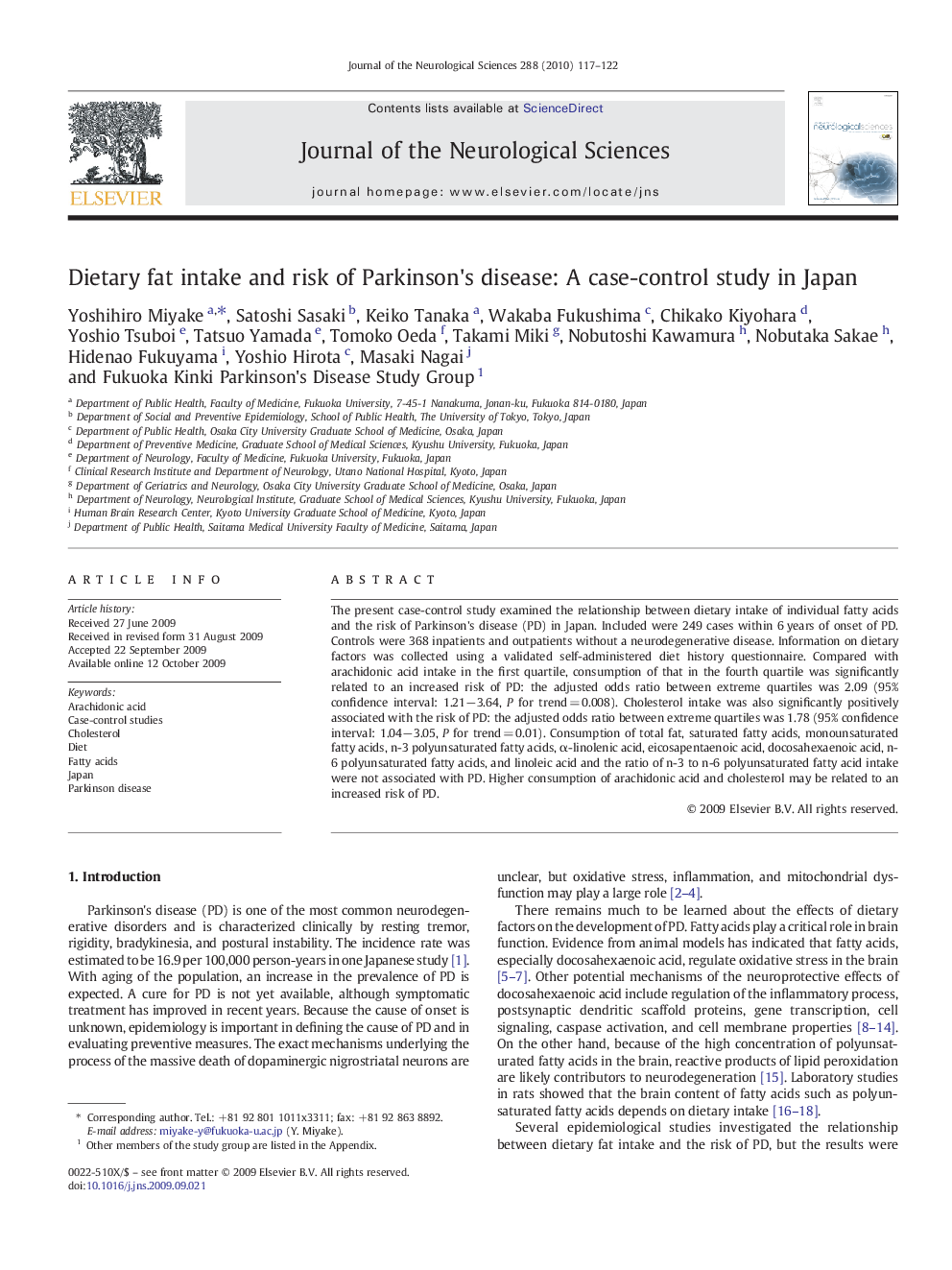| Article ID | Journal | Published Year | Pages | File Type |
|---|---|---|---|---|
| 1914766 | Journal of the Neurological Sciences | 2010 | 6 Pages |
The present case-control study examined the relationship between dietary intake of individual fatty acids and the risk of Parkinson's disease (PD) in Japan. Included were 249 cases within 6 years of onset of PD. Controls were 368 inpatients and outpatients without a neurodegenerative disease. Information on dietary factors was collected using a validated self-administered diet history questionnaire. Compared with arachidonic acid intake in the first quartile, consumption of that in the fourth quartile was significantly related to an increased risk of PD: the adjusted odds ratio between extreme quartiles was 2.09 (95% confidence interval: 1.21−3.64, P for trend = 0.008). Cholesterol intake was also significantly positively associated with the risk of PD: the adjusted odds ratio between extreme quartiles was 1.78 (95% confidence interval: 1.04−3.05, P for trend = 0.01). Consumption of total fat, saturated fatty acids, monounsaturated fatty acids, n-3 polyunsaturated fatty acids, α-linolenic acid, eicosapentaenoic acid, docosahexaenoic acid, n-6 polyunsaturated fatty acids, and linoleic acid and the ratio of n-3 to n-6 polyunsaturated fatty acid intake were not associated with PD. Higher consumption of arachidonic acid and cholesterol may be related to an increased risk of PD.
